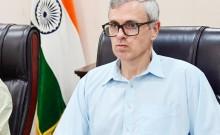Humans have been trying to decode the mysteries surrounding death ever since the day we achieved consciousness. Citing religious textbooks, spiritualists strongly argue that human life is not confined to the physical world. According to these spiritualists, a human soul will continue its journey in a different realm after death. Adding up the heat to this seemingly unbelievable theory, a near-death experience testimonial shared by a man named José Hernández has gone viral on online spaces.
Colorful tunnels and meeting with deceased father
José Hernández revealed his mindblowing experience in a Netflix docuseries. Hernández reached the verge of death following a workplace accident, and during these final moments, he witnessed several things that literally reshaped his perception of life.

Hernández, during the near-death experience, saw colorful tunnels, and at one point in time, he even met his deceased father.
"Me and my dad had a very difficult relationship in life. We couldn't even hug. So, when he died, I felt totally bitter and really regretful of the fact that we were never able to say we love each other, or we car. When I met my dad on the other side, I realized that sometimes we may not be able to say something here, [but] we're gonna be able to say it somewhere else," said Hernández, Express.co.uk reports.
Life after death real?
Even though the testimonial shared by Hernández has convinced many people regarding the possibility of life after death, medical experts assure that the visions of the NDE survivor were completely natural. According to medical experts, the shortage of oxygen supply to the brain during life-threatening events is causing these visual hallucinations.
However, some experts believe that the possibility of the existence of the human soul after detaching from the body could not be ruled out.
"Nevertheless, disembodied consciousness has yet to be definitively ruled out. Imagine the excitement if rigorous testing eventually rules it in! We would then have to reimagine the mind as some sort of complex electromagnetic algorithm normally coupled to the brain but also capable of detaching from this base," said wrote Emeritus Professor of Biochemistry William Reville in the Irish Times.
















